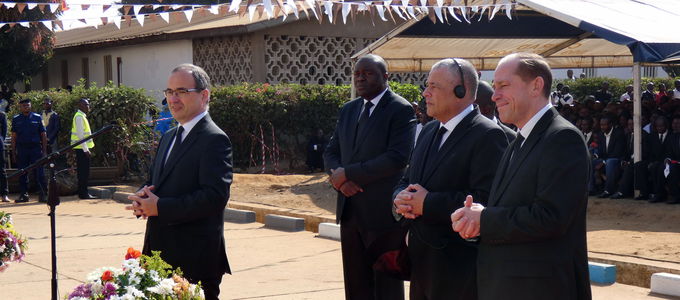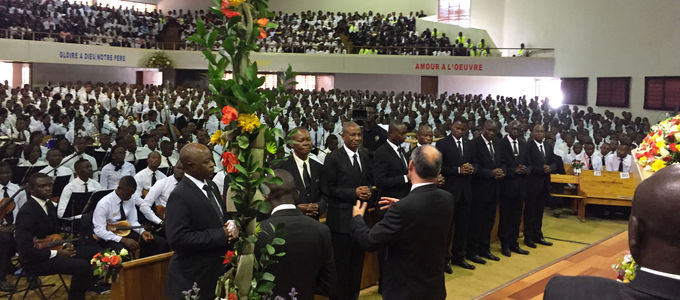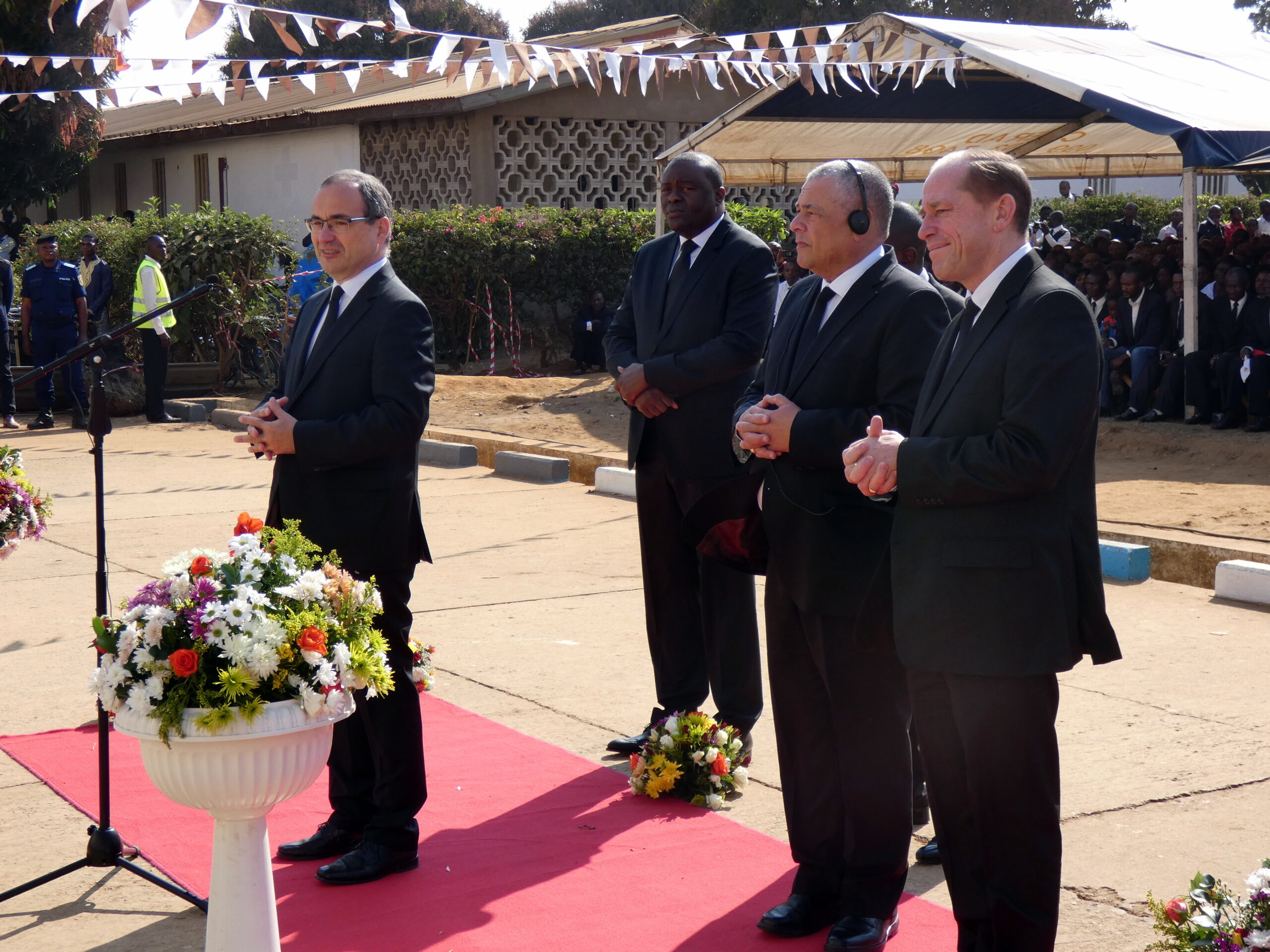
Affirming the omnipotence of God when you have lost everything? Professing the love of God when you actually feel like weeping and wailing? “Yes indeed,” says Chief Apostle Jean-Luc Schneider as he goes on to unlock the apparent contradiction.
“But I want you to know, brethren, that the things which happened to me have actually turned out for the furtherance of the gospel.” These words from Apostle Paul (Philippians 1: 12) were the basis of a sermon on Sunday, 16 July 2017. Chief Apostle Schneider celebrated a divine service with his brethren in Kawama/Lubumbashi (Democratic Republic of Congo), which was broadcast to all congregations of the Democratic Republic of Congo by both Congolese and Burundian television.
Professing faith even in times of need
Paul and Silas had been imprisoned. Their prayers and praise of God while in jail left an impression on the prison guard—and ultimately caused him to be baptised, along with his whole family. A short time later, Apostle Paul once again found himself in prison owing to his missionary efforts. And even then—despite all the associated hardships—he saw an opportunity to profess his faith. Eventually this profession of the Christian faith “made its way into the Roman army and even into the ranks of the emperor’s entourage,” said the Church leader. For this reason, Paul was able to say that his time in captivity had served to the furtherance of the gospel.
Even in our day, Christians experience afflictions and trials. They are exposed to the same needs and cares as all other human beings. “There are just as many poor people in the ranks of New Apostolic Christians as in the rest of the population. And if the Congolese franc loses 60 percent of its value, it is just as dramatic for us as for everyone else,” explained Chief Apostle Schneider. Beyond that, our faith is subjected to a special test when we are in need. The question, “Where is your God?” begins to wear us down. And at times the situation becomes even more difficult “because we refuse to resort to sin in order to solve our problem,” said the spiritual leader.
Personal benefits for the Christian
The fact that we suffer is not a blessing in itself. No one will enter into heaven simply because he has suffered so much. “So what do we profit from our sufferings?” Chief Apostle Schneider listed three elements:
1. We begin to better understand the love of Jesus. Jesus suffered the greatest moral and physical pain. He endured this suffering out of love for mankind. “When you suffer—especially when you suffer a great deal—think about Jesus Christ! He suffered in a similar manner, just to prove His love for you! Then we will understand the whole scope of Christ’s love.”
2. We come to recognise what really motivates us. When we experience suffering, and when prayers seem to go unanswered, we have the opportunity to take inventory of our own motivation. “Why do I follow Jesus? Why am I a child of God, and why do I remain faithful to Jesus? The real reason for our obedience, for our work in the cause of the Lord, is our love for Him! We love Him because He has loved us first.”
3. We learn to treasure our freedom in Christ. A person can lose many things as a result of suffering and tribulation. But a Christian can never be robbed of his freedom in Christ. “I have decided to follow Jesus Christ. I have decided for the good, and have chosen to fight against evil.”
Benefits for our neighbour
However, our trials can also afford us an opportunity to testify of Christ, added the Chief Apostle:
1. We direct attention to the love of Jesus. There is always a reason to give thanks and to serve. “Through our example, other people can also discover the love and glory of Jesus.”
2. We demonstrate the power of the Holy Spirit. “The power of the Holy Spirit allows us to take the first step, to be first to abstain from evil. ‘No! For me there will be no more thieving, no more lying, no more dishonesty, no more corruption.’” This attracts the attention of our fellow citizens and is a testimony for Jesus.
3. We profess the presence of Christ through comfort. “In affliction, let us testify of the presence of Jesus by comforting and strengthening our neighbour.”
4. We demonstrate our unity in Christ. “It is part of human nature to behave more or less egotistically when things become difficult. At such times it is every man for himself. But let us demonstrate that we remain one in Christ, even in times of affliction.”
5. We give evidence of our love for our neighbour. Even when Jesus suffered, He still concentrated on the salvation of others. “We can prove our love for our children, for our families, and for our neighbours when we pray for, and occupy ourselves with, their salvation—even when we ourselves are in great suffering.”
The Chief Apostle’s conclusion: trials give us the opportunity to strengthen our love for Jesus Christ, and reinforce our determination to follow Him. Trials also give us an opportunity to proclaim the glory of God and be witnesses of Christ.
























